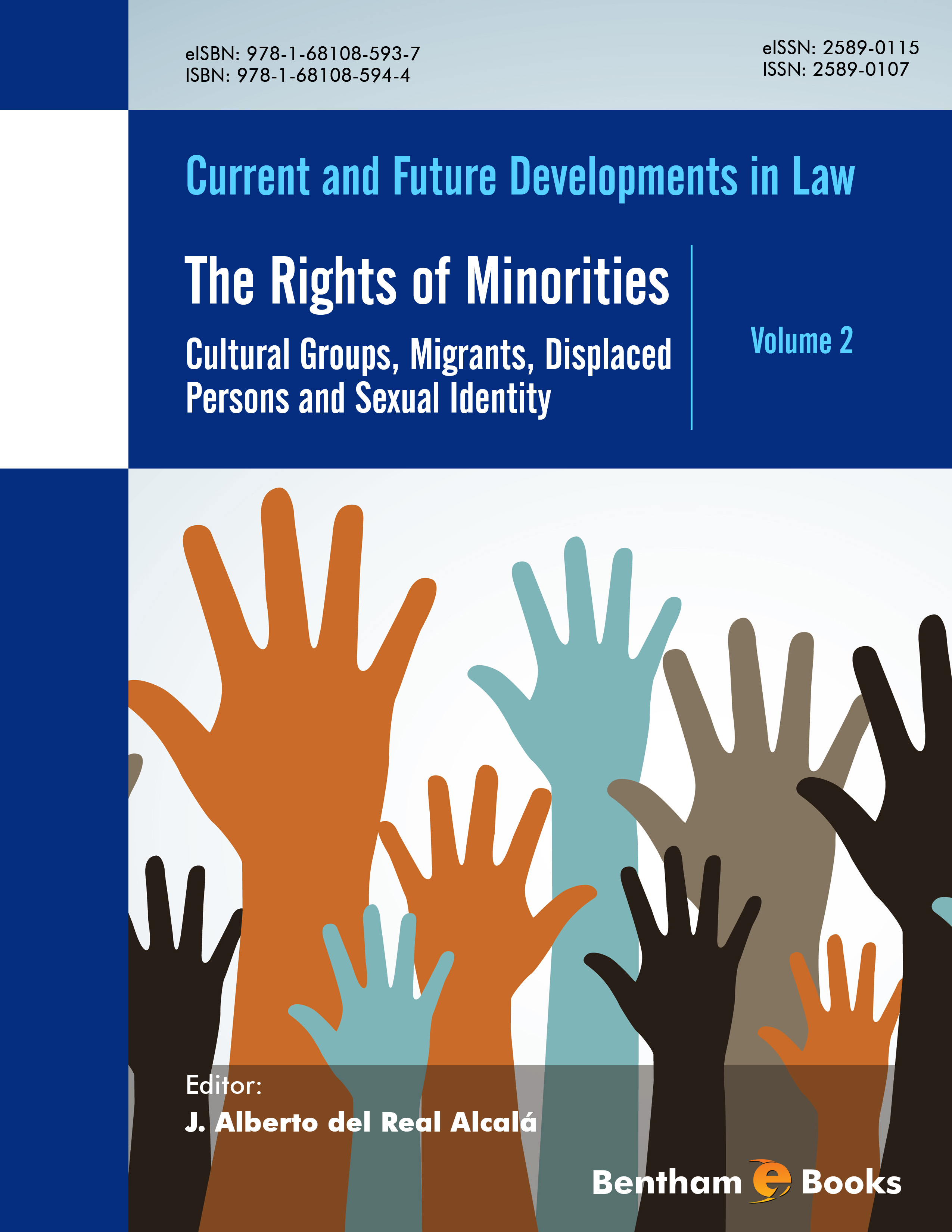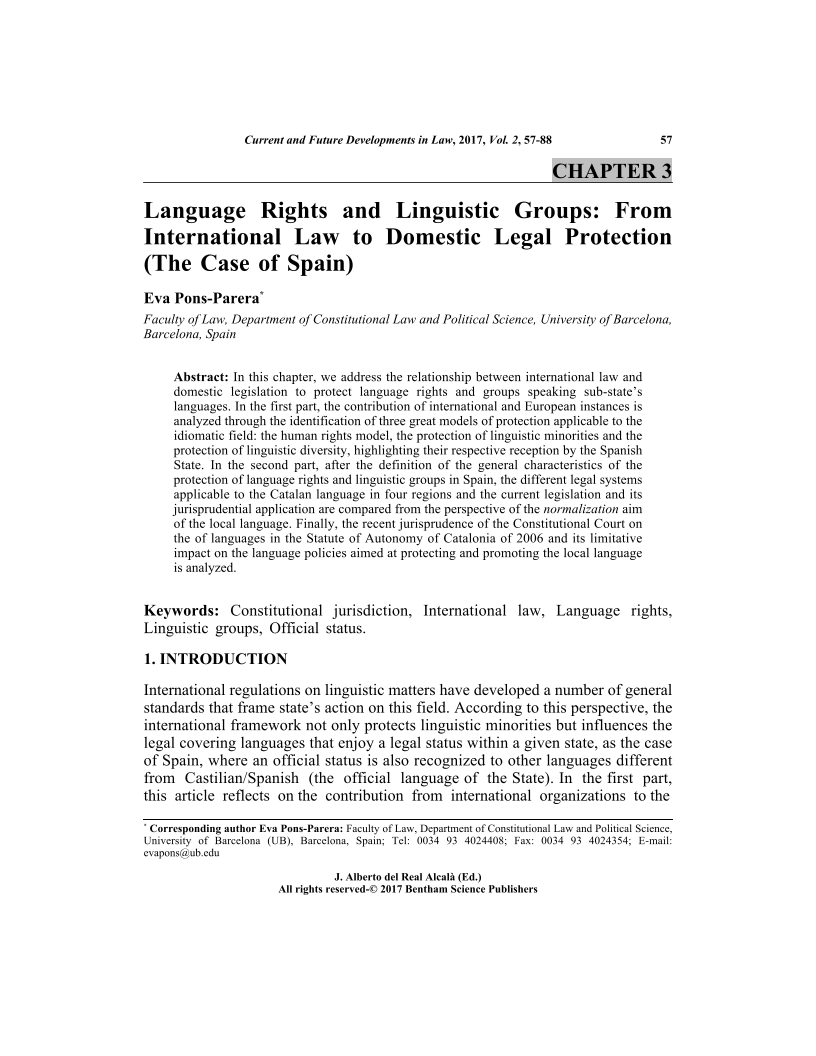Language Rights and Linguistic Groups: From International Law to Domestic Legal Protection (The Case of Spain)

- By Eva Pons Parera1
-
View Affiliations Hide Affiliations1 Faculty of Law, Department of Constitutional Law and Political Science, University of Barcelona, Barcelona, Spain.
- Source: The Rights of Minorities: Cultural Groups, Migrants, Displaced Persons and Sexual Identity , pp 57-88
- Publication Date: November 2017
- Language: English
Language Rights and Linguistic Groups: From International Law to Domestic Legal Protection (The Case of Spain), Page 1 of 1
< Previous page | Next page > /docserver/preview/fulltext/9781681085937/chapter-3-1.gif
In this chapter, we address the relationship between international law and domestic legislation to protect language rights and groups speaking sub-states languages. In the first part, the contribution of international and European instances is analyzed through the identification of three great models of protection applicable to the idiomatic field: the human rights model, the protection of linguistic minorities and the protection of linguistic diversity, highlighting their respective reception by the Spanish State. In the second part, after the definition of the general characteristics of the protection of language rights and linguistic groups in Spain, the different legal systems applicable to the Catalan language in four regions and the current legislation and its jurisprudential application are compared from the perspective of the normalization aim of the local language. Finally, the recent jurisprudence of the Constitutional Court on the of languages in the Statute of Autonomy of Catalonia of 2006 and its limitative impact on the language policies aimed at protecting and promoting the local language is analyzed.
-
From This Site
/content/books/9781681085937.chapter-3dcterms_subject,pub_keyword-contentType:Journal -contentType:Figure -contentType:Table -contentType:SupplementaryData105

